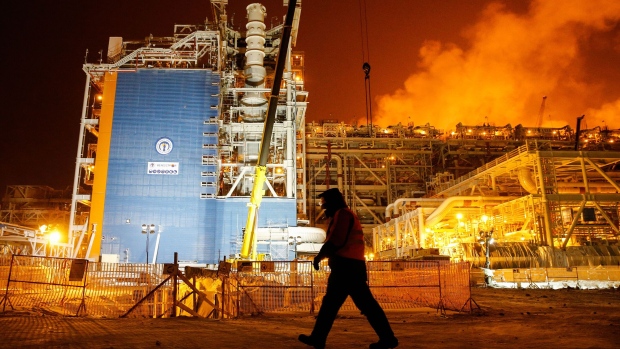Feb 23, 2024
Dutch Efforts to End Russian LNG Import Impeded by Total Deal
, Bloomberg News

(Bloomberg) -- A long-term liquefied natural gas contract between TotalEnergies SE and a Russian supplier has become an uncomfortable obstacle to the Dutch government’s pledge to end imports of the fuel from Russia.
The Netherlands stopped signing new contracts for Russian LNG imports last year, and has been working on winding down supply agreements struck before then. However, the nation is stuck with the imports because the government can’t legally end agreements between two private companies, according to people familiar with the matter.
The dilemma highlights Europe’s difficulty in completely eliminating its energy dependence on Moscow since the war in Ukraine. While the region has made huge progress in finding alternatives, Russia remains among Europe’s biggest suppliers of the super-chilled fuel amid long-term contractual obligations like the Total deal.
Under the contract that started in 2018, Total sources Russian cargoes from Yamal LNG, the operator of the processing plant in northwest Siberia, with some volumes shipped to the Netherlands. The deal accounts for about 10% of Dutch imports of the fuel. The Netherlands typically receives one cargo a month from Russia, according to ship tracking data on Bloomberg.
Spokespeople for TotalEnergies and the Dutch energy ministry declined to comment.
Chief Executive Officer Patrick Pouyanne has said the French company will keep shipping LNG from Russia as long as there are no sanctions. It would not be “reasonable” for Europe to ban imports of Russian LNG before 2025 or 2026, Pouyanne said in September.
TotalEnergies has a long-term contract to buy LNG from the project for 4 million tons annually until 2032 for markets that are not specified, according to a list of global LNG contracts compiled by BloombergNEF.
Yamal LNG is majority controlled by Russia’s Novatek PJSC, with Total and China National Petroleum Corp. holding minority stakes.
Halting purchases under long-term gas contracts unilaterally would mean TotalEnergies would have to pay billions of dollars in damages to Russian counterparties, unless they are placed under government sanctions, Pouyanne said in 2022.
--With assistance from Francois de Beaupuy.
(Updates with contract details in last paragraph.)
©2024 Bloomberg L.P.






